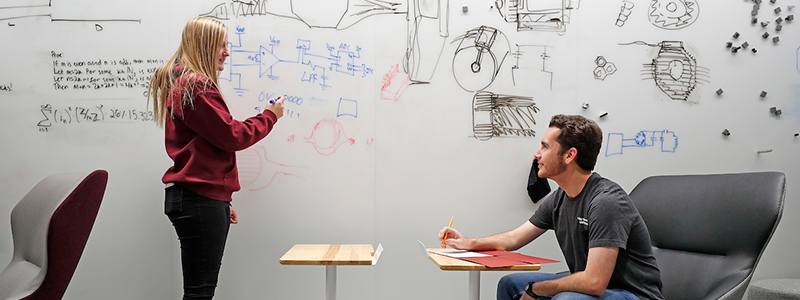Myths

Misinformation and myths can have a negative impact on self-esteem. Don’t let these common myths about ADHD hold you back!
I get good grades, I can’t have ADHD
ADHD is not tied to intelligence, it is connected to challenges with executive functioning. Many students with ADHD who are intelligent and have a lot of external support can do very well in high school and even college by relying on their innate abilities. However, gaps in executive functioning skills may become more apparent with higher academic rigor in which those skills are needed in order to effectively study, or within relationships that require more coordination and shared responsibilities, such as group projects, or living with roommates.
ADHD is a made up condition
According to the American Medical Association, 'ADHD is one of the best-researched disorders in medicine, and the overall data on its validity are far more compelling than for most mental disorders and even for many medical conditions'.
I already would have been diagnosed if I had ADHD
- Many struggles are masked if a student is performing well academically.
- Inattentive style ADHD is rarely diagnosed early and often missed in women due to not being very apparent outwardly or disruptive in a classroom environment.
- There is also historical evidence that ADHD may have been under diagnosed more among some groups than others.
- In 2010 the male to female ratio of diagnosis was found to be approximately 4:1. More recent research suggests that the difference is closer to 2:1 in children.
- Black, Hispanic, LatinX & Indigenous children are more likely to be labeled with behavioral or conduct issues compared to white children.
ADHD medication is addictive
ADHD medications are typically not addictive. Properly managed use under the care of a prescribing physician helps support rational and focused behavior.
ADHD medication alone treats ADHD symptoms
ADHD support and treatment are multifaceted; medication may help alleviate some impacts, but not all. ADHD is best addressed through a combination of medication and the following:
- Skill-building: organizational techniques, time management strategies, and coping mechanisms help handle stress and impulsivity.
- Environmental modifications: minimizing distractions, establishing routines, and structuring tasks appropriately.
- Therapy: counseling can help develop greater self-awareness, improve problem-solving, and address co-occurring mental health concerns.
- Holistic approaches: regular exercise, sufficient sleep, and a balanced diet can support attention, mood, and functioning.
ADHD is just an excuse for laziness
When students with ADHD struggle with the skills needed to get tasks done, their difficulty is sometimes mistaken for laziness. ADHD is a neurodevelopmental disability (an “invisible disability”) which presents complications to certain types of functioning. ADHD is a valid explanation for a behavior, it is not an excuse.
